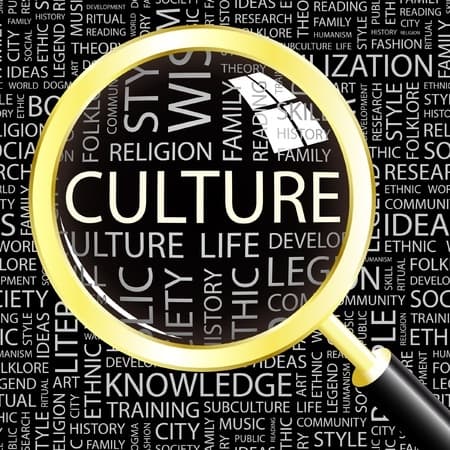The other day while with a client, I mentioned something about the organization’s culture, and the client grumpily replied “I’m sick of hearing about the culture!”
I laughed and said, “Hmmm…. You’re the second CFO to tell me that! I’m sorry, but it can’t be helped — culture drives everything.”
The CFO apologized for being grumpy and said she did want to hear about culture, she really did (!), but I knew better. Generally speaking, those in authority aren’t keen on hearing how their company culture is hindering the organization. They just want things to work they way they want them to work.
Too bad.
“Culture” is more than a word
Why is it no one around here ever… ? How come it takes forever to … ? Why in the world didn’t anyone … ? How could someone think it’d be a good idea to … ?
More often than not, the answer to any of those questions will boil down to the workplace culture.
Still, some leaders act as though culture is just a word, or something completely separate from the way employees act. Nope.
Simply put, behaviors consistently tolerated, promoted, or enforced comprise company culture. If the mission statement, vision statement, or annual message from the CEO claims the company stands for values inconsistent with those exhibited on a regular basis, well, somebody’s mistaken about the company values. (Geez, who am I kidding? Somebody’s lying.)
It’s kinda like what my momma would have said if she’d been an HR pro: “Culture is as culture does, dear.”
Culture chameleons
What’s more, most of us are culture chameleons.
If your last company wouldn’t allow managers to make a move without consulting HR, but the new company couldn’t care less about that, I’ll give you three weeks before you’re circumventing HR with the best of them.
If meetings at your previous company started late as a matter of course, but your new company doesn’t appreciate tardiness, you’ll soon figure it out and adjust as needed. (Uh … unless you’re a “special” bigwig who likes making people wait, in which case tolerance of your disrespect of other employees’ time tells another tale about the company culture.)
Anyway, you get what I’m saying.
Whether as a result of overt or subtle peer pressure, most of us will do as others are doing in the organization, because we tend to be shaped by the culture, not the other way around.
No wonder HR doesn’t drive culture. It can’t. (Not that it should. I mean, seriously, who is HR to decide company culture?)
Cultivating company culture
So is that it, then? We’re stuck with our cultures — even if we don’t like them?
Yeah, pretty much.
That is, until someone with a lot of juice, stamina, and vision desires a change. Then things will change. Barring that, the most strong-willed people in the organization will dictate how things are done.
And for whatever it says about human nature, those people probably won’t be dictating for the good of the organization. At least, I’ve never seen it happen. Between the limitations of any single person’s wisdom and the dangers of too much power, something’s gonna get wonky somewhere. That’s why the most successful workplace cultures are carefully cultivated by a team of leaders.
The question isn’t “how come,” but “how to”
We all know the “how comes?” of a healthy corporate culture. In fact, I’m convinced we know it intuitively. We don’t really need studies — although they exist and are good to read — to know that functional, psychologically healthy companies will perform better than the alternative.
What’s harder is the “how to’s.” But actually, corporate change is no different from any other kind of change. First, someone in control has to want it.
And generally, that’s not HR.
